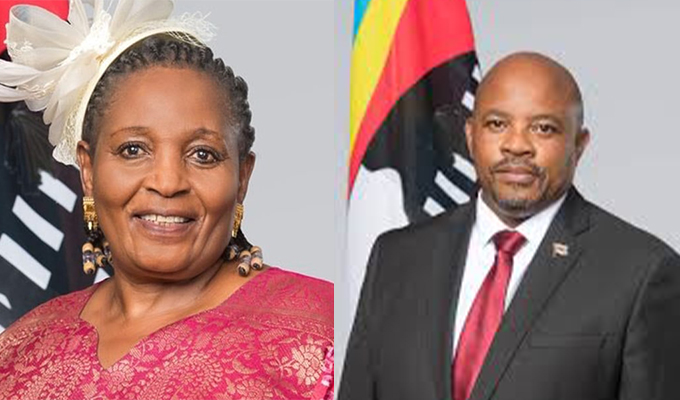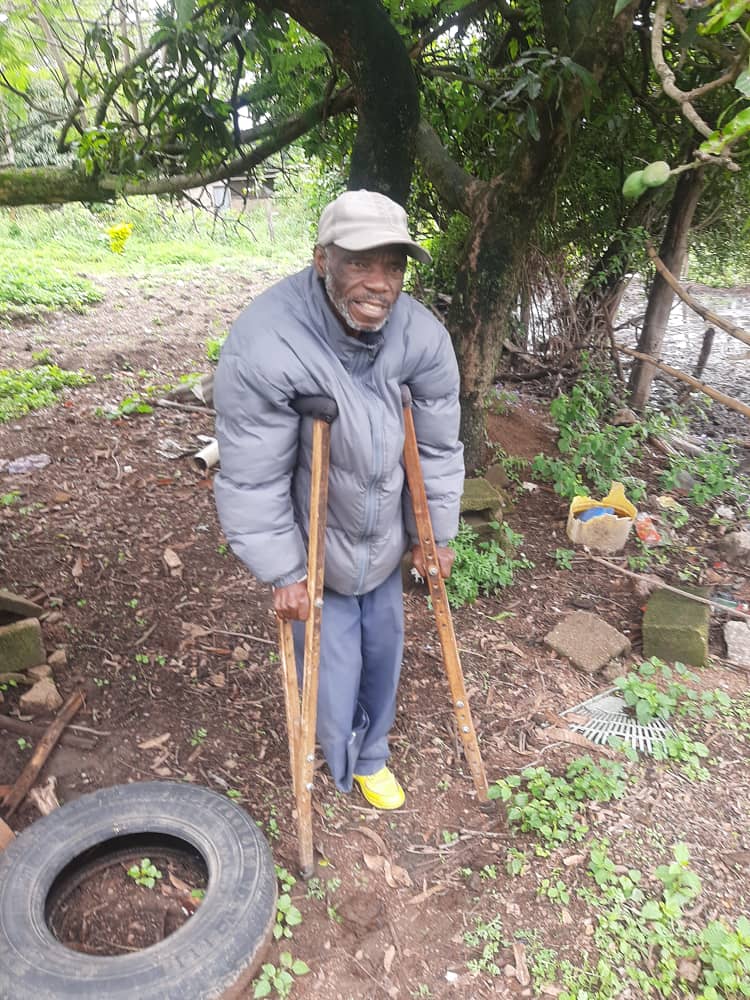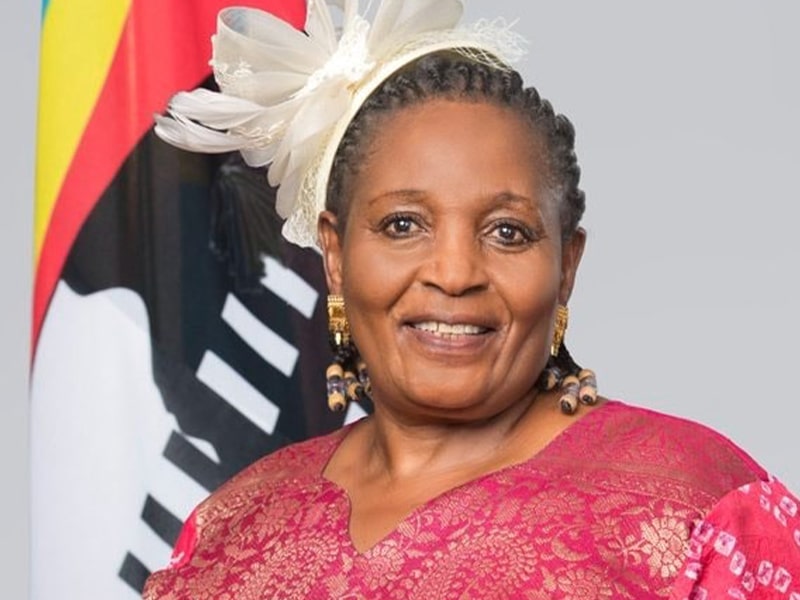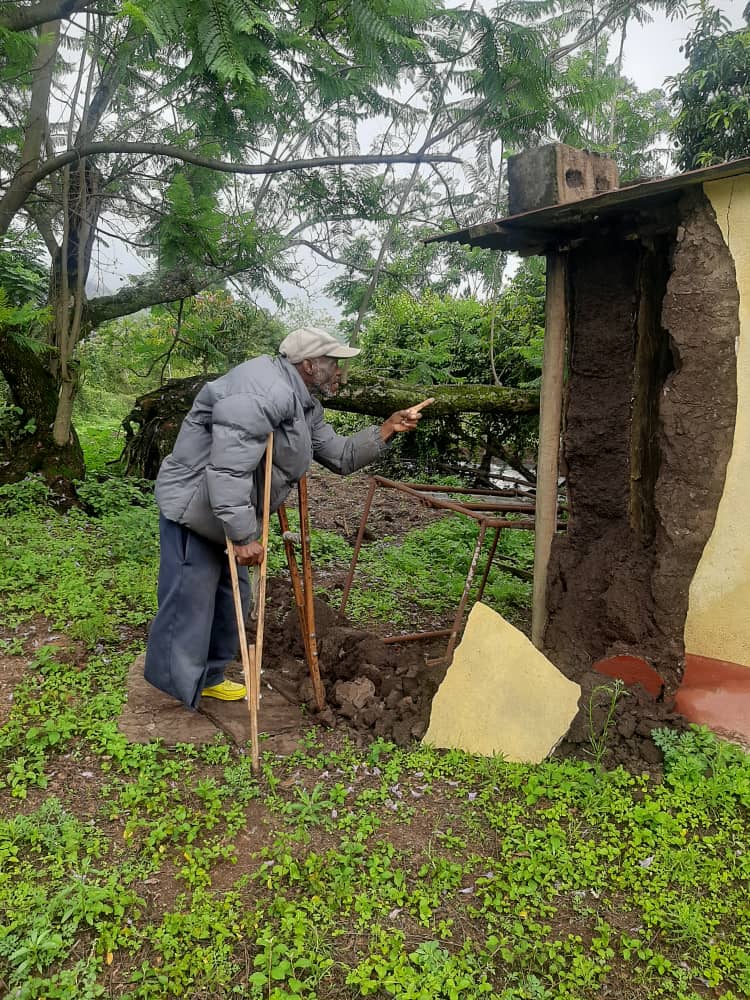
Second Affliction: eSwatini govt abandons amputees after surgery
By Vuyisile Hlatshwayo
Sipho Dube (65) from Bethany says he left Raleigh Fitkin Memorial (RFM) Hospital in Manzini on crutches after losing his leg — but without the rehabilitation support he needed to recover. His case is not unique.
Across eSwatini, amputees are discharged into communities with little to no follow-up care, a silent crisis unfolding far from the country’s policy promises.
eSwatini has 146,554 people with disabilities. Three in ten of them (38,905) have a mobility disability.
An investigation by Inhlase Centre for Investigative Journalism has uncovered a critical driver behind this neglect: the government’s long-standing failure to hire adequate rehabilitation professionals, particularly psychologists, leaving amputees without the support they need to survive and adjust after life-altering surgeries.
Apart from Dube’s case Inhlase documented other instances of neglect. After a train accident left Lubhuku resident Njabulo Maziya without both legs, he received neither rehabilitation nor compensation.
In Shiselweni, rural health motivator Khanyisile Dlamini of Hhohho area reported that an amputee in her community died soon after hospital discharge due to complete lack of follow-up rehabilitation.
When reached for comment, Fikile Shongwe, Disability Manager at the department of social welfare revealed that the department has only one psychologist. Her department, Shongwe revealed, relies on the psychological support provided at government hospitals.
In Parliament, Minister of Health Mduduzi Matsebula openly admitted that the entire public health system has only three psychologists, two of whom work in a psychiatric centre — leaving almost no support for amputees.
Two nurses in Manzini and Lubombo corroborated the staffing crisis, revealing that Manzini had no government provided psychological counsellor available while the Lubombo had one.
Experts say psychological support is a cornerstone of rehabilitation—helping amputees cope with trauma, grief, lifestyle change, and disability.
“To ensure that the amputees receive comprehensive rehabilitative health services, our department continues to advocate for inclusive health,” Shongwe stated.
Requests by Inhlase to professional bodies, Eswatini Psychology Association (EPA) and Eswatini Medical and Dental Council (EMDC), for data on registered rehabilitation specialists went unanswered.
In addition to the lack of psychological support, many emaSwati with amputations face limited access to rehabilitation. Yet the services remain costly and out of reach.
While alternative services and healthcare facilities are found in urban areas through private clinics, amputees face a double jeopardy. Firstly, the costs and the difficulty in transportation worsen their plight.
Nontobeko Makhukhula, project coordinator at the Federation of Disabled People of Swaziland (FODSWA), lamented the plight of amputees, paying more attention to diabetic patients with amputations whom she described as facing an insurmountable challenge. She confirmed that diabetic people with amputations find it costly to frequent the hospitals.
With limited movement due to the amputation, many remain dependent on government grants, leaving with limited economic opportunities. While the government pays them a monthly E450 allowance, this is a pittance compared to the needs they have. Secondly, with the E450 grant, it is almost impossible for amputees to use private clinics where general consultations start from E400.
“As many are unemployed, the measly E450 social grant is insufficient to cater for their basic needs,” observed Makhukhula.
Their situation makes it worse to access the much-needed assistive devices which remain beyond reach for many. When Inhlase inquired with Comprehensive Prosthetics & Orthotics (CPO), eSwatini’s manufacturer of assistive devices, about the cost of a tailored prosthetic leg, the response was E20 000. With the social grant as their only income, an amputee would be required to save all their income for four years to afford a prosthetic leg.
Dube added that he was unable to raise the E22 000 charged by Ekululameni at St. Joseph Ezimpofu for a prosthetic leg. As Makhukhula noted, there is no dedicated budget for the procurement and maintenance of assistive devices in the country.



Makhukhula bemoaned that the free health services for persons with disabilities remain a buzzword as it has not yet been implemented to comply with the legal instruments. According to the 2017 Population and Housing Census Volume 6, 12,534 people with mobility disability are unemployed.
The colonial-era dual health system persists, widening urban-rural disparities. With almost eight in ten rural residents having access to only 23% of health workers, impoverished amputees continue to endure the indignity of socioeconomic exclusion due to unmet rehabilitation needs in a collapsing healthcare system.
Despite adhering to the Rehabilitation 2030 Initiative, a World Health Organisation (WHO) call for action to embed rehabilitation into the healthcare system and having ratified the Convention on the Rights of Persons with Disabilities (CRPD), which guarantees access to healthcare and rehabilitation and psychological support for persons with disabilities near a person’s home, eSwatini is still far from meeting its obligations under these agreements.
Locally, the National Disability Policy of 2013 and subsequent plans, such as the National Disability Plan of Action (NDPA) 2024-2028, promise free, comprehensive healthcare and assistive devices, including rehabilitation and counselling by qualified healthcare personnel at all levels of state healthcare, for persons with disabilities and their families. The National Persons with Disabilities Act No. 109 of 2018 reinforces these rights to equal access to healthcare.
However, Inhlase’s investigation shows that these commitments only exist on paper.
The demand for rehabilitation services in eSwatini continues to grow due to rising chronic illnesses and injuries. The Ministry of Health Annual Budget Performance Report for Financial Year 2024/25 shows a steady increase in diabetes and hypertension diagnoses over the last three years along with persistently high rates of road accidents — all major contributors to amputations. Diabetes cases increased from 1,606 in 2022, to 2,513 in 2024, while hypertension cases rose from 4,155 in 2022, to 7,587 in 2024. Recorded road accidents stood at 3,176 in mid-2024.


Significantly subsidised by foreign aid, the US aid cuts have hard hit the poorly resourced state healthcare services. According to the UN Eswatini Joint Analysis of National Budget, the healthcare system is plagued by resource constraints. It attributed it to the trend of low health budgetary allocations over the years. It was E2.79 billion (11%) in FY 2023/24, E3 billion (10.2%) in FY 2024/25 and E3.10 billion (9.5%) in FY 2025/26, falling short of the African Union’s 15% target set in the 2001 Abuja Declaration.
Interviewed at Lobamba Lomdzala Chief’s Council (bandlancane) meeting, retired Ministry of Tourism and Environmental Affairs Principal Secretary Emmanuel Dlamini criticised the concentration of services in urban areas and questioned the government’s slow efforts to decentralise healthcare to rural communities.
Stigma and cultural beliefs deepen discrimination, as amputees are often viewed as cursed or associated with witchcraft, leading to social exclusion. Dlamini (Emmanuel) highlighted a lack of community understanding and cultural beliefs surrounding disability in society. He underscored that discrimination stemmed from cultural beliefs behind the causes of disability. Dlamini (Khanyisile) shared the same sentiments, noting that families and community members avoid an amputee because of the bad luck of having one’s limb ‘buried’ before death.
While other African countries have made strides in delivering rehabilitation healthcare services, eSwatini lags behind in the adoption of digital rehabilitation to overcome these barriers. Digital rehabilitation prioritises the use of online and other virtual platforms in the health sector. The National Health Sector Strategic Plan (NHSSP) 2024-2028 promotes the use of digital technology in healthcare. It aims to ensure universal access and utilisation of acceptable, affordable, effective, equitable, and efficient promotive, preventive, curative, rehabilitative, and palliative health services for all populations in eSwatini.
Experts acknowledge its potential but question its suitability for impoverished populations. Clinical psychologist Ndoniyamanzi Mdlalose and FODSWA’s Makhukhula have mixed feelings about the use of digital rehabilitation. The psychologist expresses dissatisfaction with its efficacy in eSwatini. Considering that 85% of people with disabilities are not engaged in economic activities, Makhukhula raises the concern of the unaffordability of smartphones. However, she does not discount that online healthcare services can foster a positive patient-healthcare provider relationship good for addressing the unmet rehabilitation needs of people with amputations.
Faced with climate-induced disasters, eSwatini can no longer overlook rehabilitation in its response to emergencies. Rehabilitation becomes critical due to traumatic or surgical amputations caused by the natural disasters. WHO experts emphasise that rehabilitation not only aids physical recovery but also addresses psychological trauma, helps rebuild community infrastructure, and restores dignity to affected people. Rehabilitation is crucial for universal health coverage and is a key strategy for achieving Sustainable Development Goal 3 seeking “to ensure healthy lives and promote well-being for all at all ages.”
Access to healthcare is a fundamental right, yet disparities persist for emaSwati with a total of 38,905 amputees, of whom 87% live in rural areas compared to 13% in urban areas. They continue to struggle with significant healthcare disparities and endure the indignity of social exclusion.



